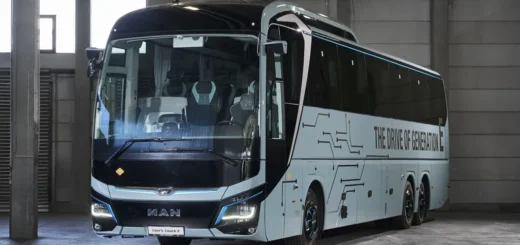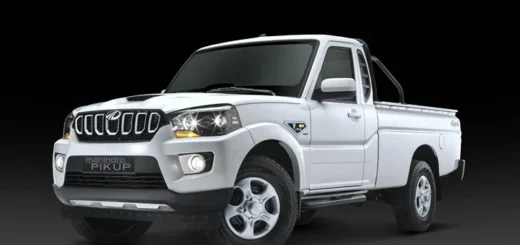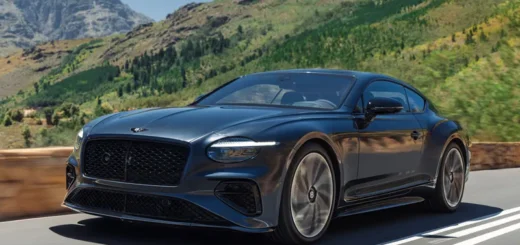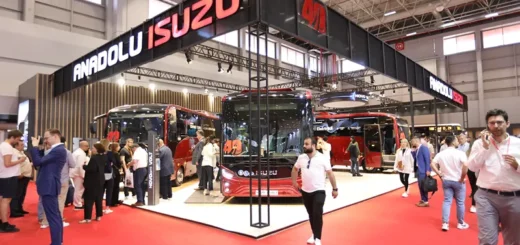LNG as alternative fuel for Trucking: Europe takes the lead
LNG-powered Volvo FM and FH range of trucks introduced in Europe.
Amid all electrification debates in the transportation sector, global CV makers are stepping-up their ‘gas’ pedals to mitigate climate impacts of the trucking industry! They are betting high on Liquefied Natural Gas (LNG) or Biogas (renewable natural gas) as a pragmatic alternative to conventional diesel for heavy regional and long-haul trucking operations, especially in Europe. The proponents claim that LNG offers considerable environmental and public health benefits with 20 percent lower CO2 emissions than diesel, even up to 100 percent emission cut by using Bio-LNG, thereby realizing sustainable, eco-friendly haulage. It also promises reduced nitrogen oxide (NOx) emissions, with virtually no particulate emissions, while LNG-powered engines are said to be significantly quieter than conventional diesels.
Volvo Trucks, for instance, has recently unveiled the first-ever gas powered truck in the European market. The company is now working together with gas suppliers and customers to expand LNG infrastructure in Europe. “With EU making more stringent regulation on CO2 figures for heavy vehicles, we see a clear possibility for increasing LNG market shares as a vital part of the solution to lower emissions” notes Lars Mårtensson, Director of Environment and Innovation at Volvo Trucks.
Also Read: Volvo FM, FH LNG-powered Trucks on par with Diesels
Volkswagen Group Logistics, together with Scania, is also in favor of promoting LNG as a truck fuel. It has revealed that more than 100 LNG trucks are to be used on the roads of north Germany in future as a commitment towards sustainable logistics. It is in dialogue with gas suppliers to construct LNG refueling stations in the region. Scania claims that its LNG powertrain, apart from 20-90 percent less CO2 than diesel engines depending on the choice of fuel, emit some 95 percent less NOx. Particulate emissions during combustion are virtually completely avoided by up to 95 percent, while the noise levels are curbed by about 50 percent (-3 db), according to the truck maker.
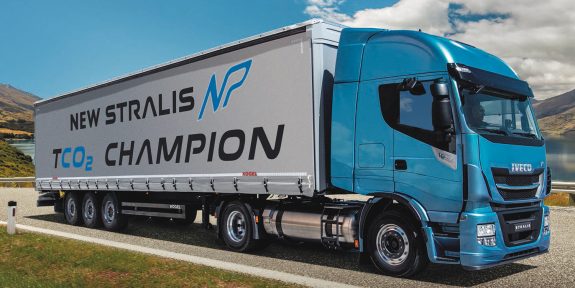
With 8.7-litre, 400 hp LNG engine, Iveco’s new Stralis NP offers 7% reduction in TCO as against diesel trucks
Italy-based IVECO, one of the pioneer of natural gas transportation in the industry, has also introduced Stralis NP (Natural Power) 460 hp truck for long-haul operations. The brand claims up to 95 percent cut in CO2 emissions by using compressed or liquefied biomethane as fuel. The company already supports a running parc of 22,000 natural gas vehicles across Europe.
Conventional Natural Gas is fossil fuel-derived, predominantly made up of methane (CH4). Alternatively, Renewable Natural Gas (RNG), a.k.a Bio-methane or Biogas, can be produced from renewable means like decaying organic materials or bio-waste. But, to be used as a transportation fuel, the natural gas has to be either compressed (CNG) or liquefied (LNG). Notably, the primary source of natural gas determines its `cleaner´ credentials. Both the alternative fuels (CNG and LNG) can be locally produced, even costs less than diesel in many European countries and in India as well. Although CNG is widely used for passenger cars and buses, LNG meets the longer range requirements of trucks, as liquid is denser than gas (CNG) and, so, more energy can be stored by volume in a given tank. Further, the carrying capacity of vehicles powered by the LNG is 2.5 times more than that of CNG.
Also Read: Tata Marcopolo LNG Bus (LPO1613) – Tech Specs, Details
Energy experts opine that long-term availability and commercial viability of natural gas is excellent in a global level. Biogas, for instance, thus far has been only produced in limited quantities across the globe. With more and more gas-run products coming up, the locally production of the alternative fuel can be amplified in every market. “All told, this makes liquefied gas the best widely available climate alternative on the market for long and heavy transports. What is needed now is gas-powered trucks that can compete with diesel in terms of performance and fuel consumption, and continued expansion of LNG infrastructure. In both cases major progress has been achieved,” observes Mårtensson of Volvo Trucks.
*An edited version of this article has been published in the January 2018 edition of MotorIndia Magazine.


